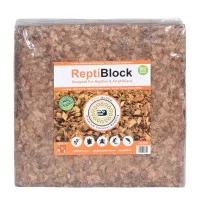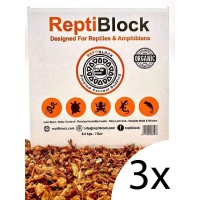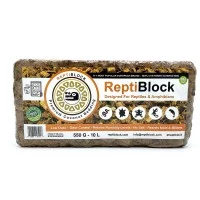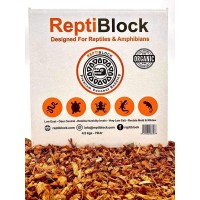Coconut Chips - Excellent Substrate for Your Flowers and Plants
Coconut chips are the perfect solution for all gardening and plant enthusiasts. Used as a substrate, this natural material obtained from coconut palms provides excellent conditions for plant growth.
Thanks to its water absorption capability, coconut chips effectively retain moisture, protecting the roots from drying out. Their structure also aids in loosening the soil, allowing better airflow to the plant roots.
Coconut as an Outstanding Substrate for Plant Health
In soil mixtures or fertilizers, coconut chips serve as an excellent ingredient, improving soil structure and supporting healthy growth of flowers and plants.
Practical Applications of Coconut Chips in Animal Husbandry
Coconut chips are a versatile material used not only in gardening but also in animal husbandry, especially for reptiles such as snakes, turtles, and lizards. Their thicker fraction makes them an ideal substrate, providing a suitable environment for these animals to thrive.
Coconut chips are resistant to mold and insects, maintaining cleanliness and hygiene in terrariums. Moreover, the coconut shells from which the chips are derived are natural materials, ensuring safety for the animals.
By using coconut chips, you can create a comfortable and healthy living environment for your pets, ensuring their well-being.
Plants Thriving in Permeable Substrates and Coconut Chips
The substrate is a key element influencing healthy growth and development of plants. Some plant species require permeable substrates that provide proper root ventilation and water drainage. In such cases, coconut chips prove to be an excellent choice, meeting the requirements of plants that prefer permeable substrates.
Coconut chips are a natural material obtained from coconut palms. Their unique structure allows for excellent retention of both air and water in the substrate, which is crucial for plants that require well-watered yet well-draining environments.
Plants that favor permeable substrates often originate from specific habitats such as jungles or coastal regions.
In their natural environment, the soil is often sandy or gravelly or simply non-absorbent, providing excellent water drainage. Coconut chips, due to their water retention and air-permeability properties, mimic these natural conditions, positively influencing plant development.
Coconut Chips as an Additive to Potting Soil
It is worth mentioning that coconut chips are also suitable for potted plant cultivation. Often used as an additive to traditional peat-based substrates, they help improve soil structure, increasing its permeability.
Potted plants such as philodendrons or monsteras, which prefer slightly moist yet well-ventilated substrates, find excellent growing conditions in coconut chips.
Another advantage of coconut chips is their ability to store nutrients. Similar to the coconut shell from which they are derived, chips act as a natural source of calcium and magnesium, which positively impact root development and overall flower growth.
Coconut not only benefits plants but also the environment. As an ecological product obtained from the coconut tree, specifically the coconut palm, chips are nature-friendly and contribute to sustainable gardening practices.
In conclusion, coconut chips are an excellent choice for plants that prefer permeable substrates. Their ability to maintain proper moisture levels, provide drainage, and store nutrients makes them an ideal environment for many plant species. Environmentally friendly, they offer a sustainable solution that can bring numerous benefits to both amateur and professional gardeners.












